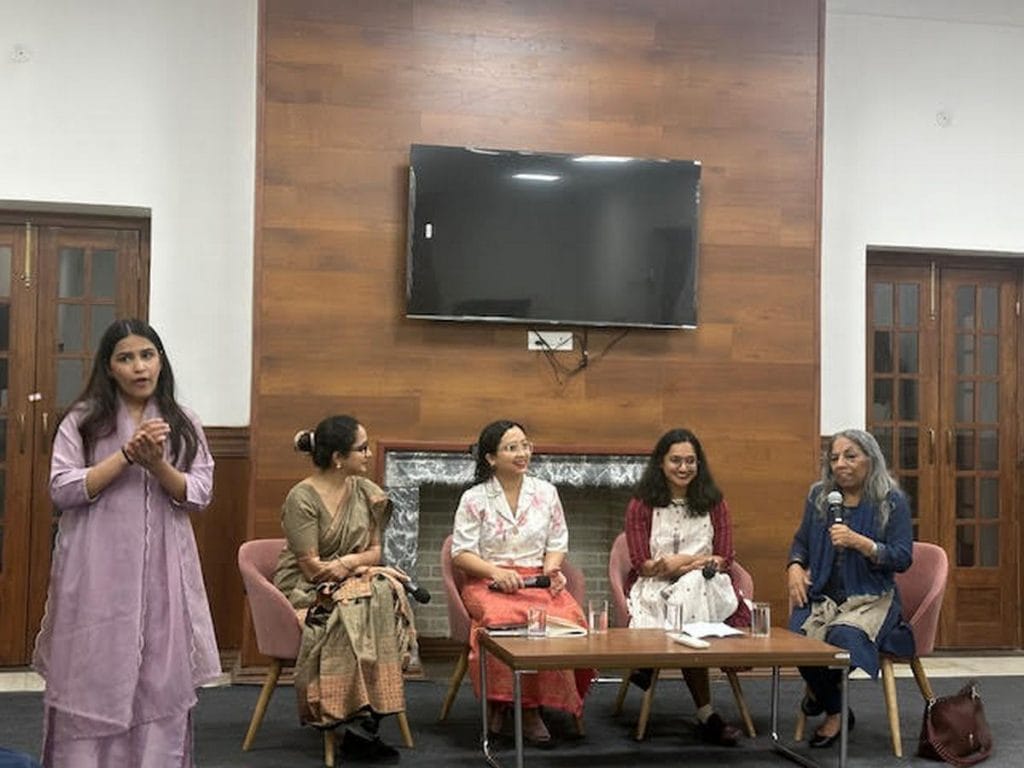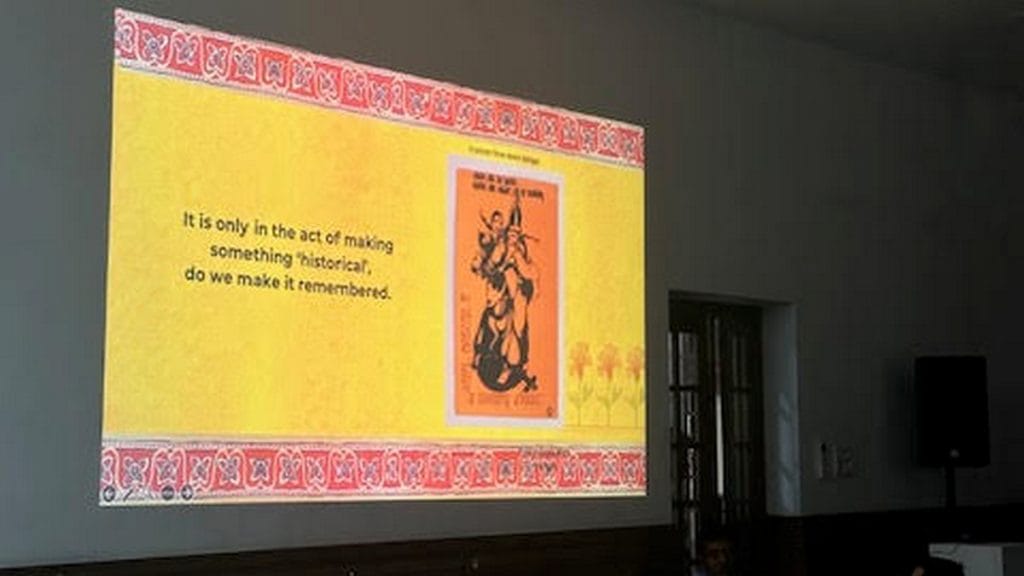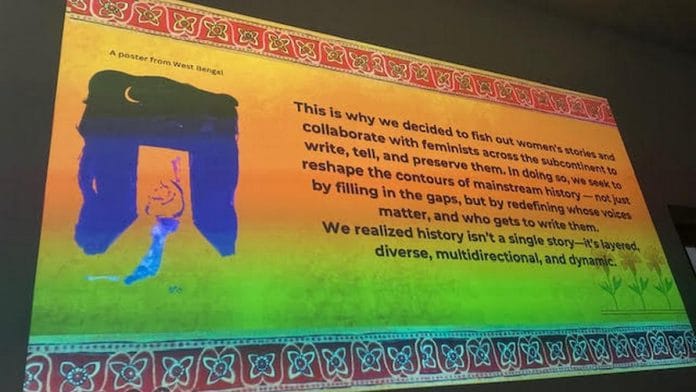New Delhi: In the heart of Delhi, at Travancore Palace, Zubaan Books brought together a room of women to reclaim the stories left out of mainstream archives. Who gets to tell history and who gets remembered? These were the questions that hung in the air.
The 24 April event, ‘The Past Is Before Us’, was an unpacking of Zubaan’s expansive project, ‘Our Stories, Our Words’, an effort to document the “disappeared histories” of marginalised women.
“It is so big and so ambitious and so crazy and so unrealistic… and while we have plenty of ambition, we don’t have a lot of money, but we’ll find it somewhere,” said Bidisha Mahanta, Zubaan’s executive director, prompting laughter and a wave of knowing nods from the audience.
This word, ‘ambitious’, summed up the discussion, moderated by Urvashi Butalia, activist, publisher, and co-founder of Zubaan. The panel, consisting of Zubaan’s team and a sign language interpreter, explained how they plan to document feminist memories across South Asia. Butalia said early support came from Goethe-Institut South Asia, which also brought the event to Delhi as part of ‘Empowerment–Art and Feminisms’, a travelling exhibition about the intersections of art, gender, and resistance.

“This project gives due importance to how people have been historically marginalised and giving power back to them,” said Mahanta.
The project seeks to create an inclusive archive of women’s movements in India by actively engaging researchers, writers, and individuals from historically marginalised communities, enabling them to document and narrate their own histories.
“In doing so, we seek to reshape the contours of mainstream history-writing itself—not just by filling in the gaps but by redefining whose voices matter and who gets to write them. In one way, we are shifting the centres of power,” said Aanchal Seema Khulbe, manager, Programming and Media Archive. The audience responded with enthusiastic applause.
For two hours in Travancore Palace, feminism was alive, palpable, and insistently collective. It stood framed on the walls through handmade posters, was signed along in the back row, and played in archival footage. It was a room full of women making history by refusing to forget it.
Also Read: Delhi exhibition traces 130 yrs of children’s book illustrations. Satyajit Ray to Priya Kurian
Building an authentic feminist archive
The audience was given an outline of Zubaan’s mission: ten books and one hundred oral histories, each capturing a decade of women’s lives since 1920.
Slides curated by Zubaan’s team showed archival posters from global feminist movements, portraits of fisherwomen at dawn, and striking images of Northeast Indian women during the 1962 India-China war, revealing often overlooked histories of resistance.
Khulbe then invited the audience into a moment of reflection.
“Back in school, how many stories of women from Northeast India or fisher communities did we read in our history textbooks?” she asked.
The question captured the project’s raison d’etre: recording histories long neglected by patriarchal record-keeping. Indira Tayeng, project associate at Zubaan, highlighted how the Poster Women project collects posters, personal accounts, and interviews to create a visual and oral archive of the women’s movement in India.

The panellists—including author and activist Navsharan Singh; Gorvika Rao, professor at Miranda House; and Sanghapali Aruna Lohitakshi, Dalit women’s rights activist and executive director of Project Mukti—then discussed the project’s significance.
Lohitakshi offered a searing critique of cultural appropriation, pointing to a digitally altered image of 19th-century Dalit writer Mukta Salve, whose features had been recast to appear Aryan. This, to her, was symptomatic of a larger erasure.
“Authenticity demands that our faces, our dialects, and our narratives remain unedited for a mainstream audience,” she declared.
Lohitakshi also spoke about the persistent absence of Dalit women from historical records, and how their contributions, when acknowledged at all, are routinely met with suspicion.
Also Read: Young, Left, and reading—Delhi’s May Day Bookstore celebrates Workers’ Day for the 13th year
‘Luxury of ambition’
Women have been rendered invisible even in movements they helped sustain, according to Navsharan Singh, who gave the example of the recent farmers’ protests.
“Women died protesting, yet every speech saluted only the ‘Kisan Bhai,’” she recalled. “We keep getting written out from history and from policy, which is why we must allow ourselves the luxury of ambition.”
She cited overlooked traditions such as Miya poetry— written by Assam’s Bengali-speaking Muslims—and Rehana Sultana’s work, which is still languishing at the margins of literary recognition.
From the audience, Professor Vijayalakshmi Brara, a gender studies scholar, questioned spatial hierarchies: “Why is Delhi always the ‘centre,’ and Arunachal Pradesh the ‘margins’?”
Activist and documentary filmmaker Sehjo Singh, named after the poet-saint Sehjo Bai, said feminism’s strength lies in its ability to challenge caste and class structures from the ground up.
Turning to the young women in the audience, she added, almost in passing: “Don’t be a good girl.”
(Edited by Asavari Singh)






